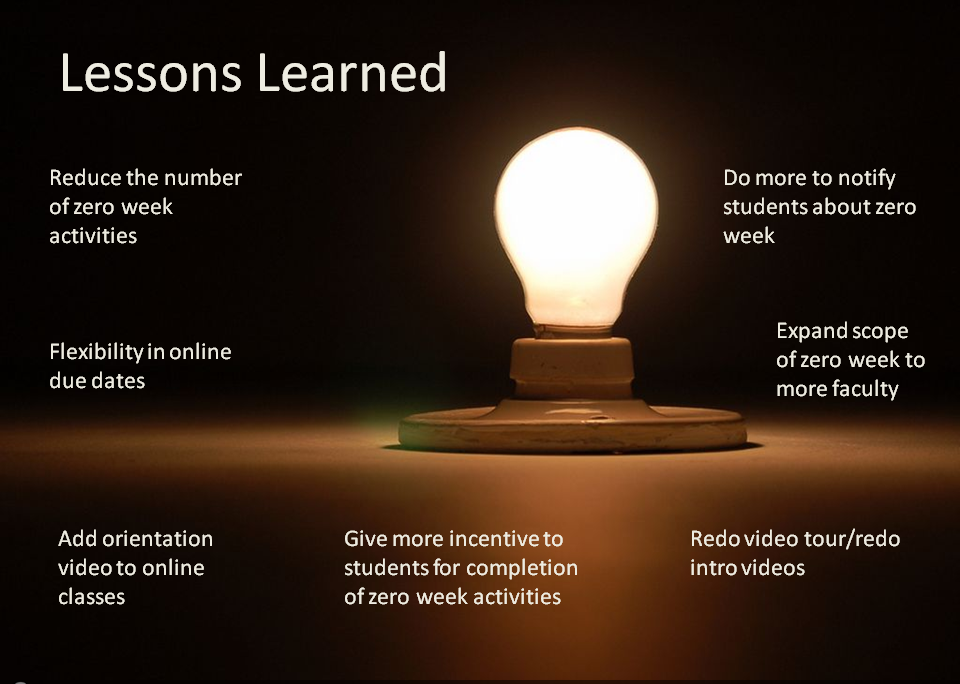SCC's Initiative
Much has been written about best practices for online learning. The challenge is not knowing what to do, but the implementation and assessment and adaptation of practices. With the growing demand for online courses, a cohort of faculty decided to address the issue of disproportionate student success in online courses believing that change is best facilitated through the work of many versus the work of one. They attempted to do this through the scholarship of best practices and the implementation of Zero Week interventions in online classes as facilitated through the Center for Teaching and Learning (CTL).
Initiative Survey Results
A survey (IRB approved) was conducted during the Fall 2014 semester of students enrolled in courses that implemented zero week strategies. The results are as follows:
- 72% of the students (n=30) who responded to the survey indicated that they participated in zero week.
- Of those students who knew about zero week and chose not to participate, they either were experienced in online courses, were not sure if they would be remaining in the class, or did not have the time to participate.
- Most students who participated in zero week reported finding out about it through email or Canvas.
- The majority of the students reported that the zero week interventions were “helpful” and “very helpful” to the learning experience.
Below are some of the tools implemented during zero week that ALL online instructors are recommended to use in their courses.
Lessons Learned
- Reduce the number of zero week activities
- Flexibility in online due dates
- Add orientation video to online classes
- Give more incentive to students for completion of zero week activities
- Do more to notify students about zero week
- Expand scope of zero week to more faculty
- Redo video tour/redo intro videos
